Cosmos of the Ancients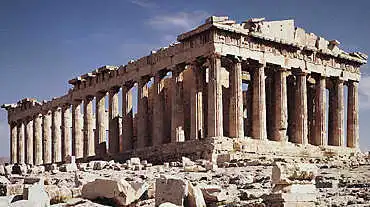 The Greek Philosophers on Myth and CosmologyPlato he vast body of texts remaining from Plato (427-347 BC) cannot be thoroughly penetrated here, not even in regard to his views on the gods and their myths. In Timaeus, the dialogue with Plato's most elaborate presentation of a cosmogony, he does not let his teacher Socrates speak on the subject, but the Pythagorean philosopher Timaeus, who has given the dialogue its name. He does so, though, upon the request of Socrates, and to his liking.
he vast body of texts remaining from Plato (427-347 BC) cannot be thoroughly penetrated here, not even in regard to his views on the gods and their myths. In Timaeus, the dialogue with Plato's most elaborate presentation of a cosmogony, he does not let his teacher Socrates speak on the subject, but the Pythagorean philosopher Timaeus, who has given the dialogue its name. He does so, though, upon the request of Socrates, and to his liking.
It has come into existence; for it is visible and tangible and possessed of a body; and all such things are sensible. For something to come into existence there must be a cause, and that cause is the creator, an eternal being of perfection (the demiurg) — far from a god in the sense of the Greek mythology — who wanted to make an image of his perfection, a finite impression of the infinite. His reason for this was as pure and noble as his being: He was good, and in him that is good no envy ariseth ever concerning anything; and being devoid of envy He desired that all should be, so far as possible, like unto Himself.
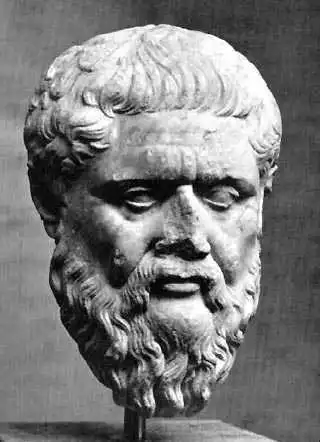 Plato.
But it was not out of a nothingness the world was created — to the logics of the Greek, the making of something out of nothing, creatio ex nihilo, would be hard to argue for. The benevolent creator had something to work on: He took over all that was visible, seeing that it was not in a state of rest but in a state of discordant and disorderly motion, He brought it into order out of disorder. There was something in the world before the act of creation, a disorder, put into order by the creator. That was the nature of creation — giving a divinely beautiful order to the primordial chaos. This order was based on proportion — the parts should relate equally and balanced to each other, a divine symmetry often expressed in mathematics. An original pair was constructed, out of necessity: "without fire nothing could ever become visible, nor tangible without some solidity, nor solid without earth." Thus, the two elements fire and earth were born, but proportion demanded that they were accompanied by two more, air and water. As for the shape of the whole world, there was only one possibility: Now for that Living Creature which is designed to embrace within itself all living creatures the fitting shape will be that which comprises within itself all the shapes there are; wherefore He wrought it into a round, in the shape of a sphere, equidistant in all directions from the center to the extremities, which of all shapes is the most perfect and the most self-similar. He allowed for it only one motion — a rotation within itself, belonging in particular to reason and intelligence. And this world god — for the word god is used of this one — was made to need no other but itself, all in all "a blessed God." Its soul was mixed in a complex fashion out of three substances: the Same, the Other and Being. For the eternal being, there is neither past nor future, it just is, but for a world with a starting point there was need for time, which was created simultaneously with the world, so that the one would not survive the other. Thereby the problem regarding what was before creation, similarly handled by Augustine, was solved: there was no time before creation, therefore nothing before it, not even a nothing. For the purpose of being recorders of the passing of time, the heavenly bodies were created — the sun and moon, as well as the planets, given their respective orbs. Timaeus must confess that, though the periods marked by the cycles of the sun and moon are easy enough to understand, the chronology that the planets mark is yet to be deciphered by man. A time span of utter significance is that, when all the planets have returned to a constellation they had before, and the whole process starts anew: the complete number of Time fulfils the Complete Year when all the eight circuits, with their relative speeds, finish together and come to a head, when measured by the revolution of the Same and Similarly-moving.
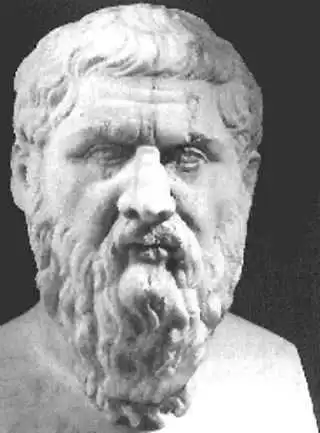
Again for reasons of proportion and symmetry, the number of kinds of living creatures should equal that of the elements: gods for fire, birds for air, fish for water and land walking creatures for earth. The gods were made round, like the shape of the world itself, and they were the fixed stars. Timaeus does not name them, but to the Greeks the stars in question were no mystery. Regarding the gods known through the mythology of Homer and Hesiod, Timaeus suddenly speaks with a diplomatic humility, reeking with irony: Concerning the other divinities, to discover and declare their origin is too great a task for us, and we must trust to those who have declared it aforetime, they being, as they affirmed, descendants of gods and knowing well, no doubt, their own forefathers. It is hard not to interpret this comment as expressing a doubt in the existence of all those lesser gods, among which he counts such dignities as Uranus, Cronos, Hera and even Zeus himself. Now, the creator of the world addressed the gods, explaining to them that they be immortal — although not indestructible — and for the creation of mortals it would be necessary that those would not have the same high creator as the immortals: "But if by my doing these creatures came into existence and partook of life, they would be made equal unto gods." Therefore, he left it up to the gods to create the beings of air, water and earth. The souls of those lesser beings, though, the high creator took upon himself, using the same mixture as for the soul of the world, but by this time far from as pure, especially after again being mixed. This potion was split into as many parts as the stars in the sky, one given to each of them. Now, these star souls were to be born in the flesh of men, and if living righteously they would get to return to their star, otherwise they would be reborn in lesser bodies, until learning to live justly — by having their reason control and rule over their emotions.
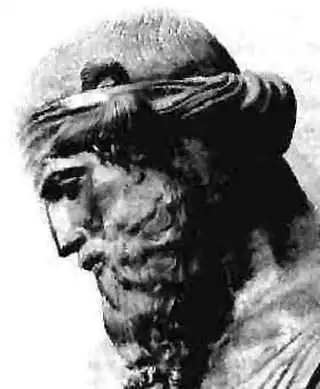
Give ear then, as they say, to a right fine story, which you will regard as a fable, I fancy, but I as an actual account; for what I am about to tell you I mean to offer as the truth. It is significant that Plato takes for granted that such a tale of gods in the heavens would not be taken seriously, and so it is likely that the truth he means it to contain is rather allegorical. Plato explains that righteous men were ruled to go to the Isles of the Blessed, whereas the villains went to "the dungeon of requital and penance which, you know, they call Tartarus." But in the distant times where those proceedings started, this judgement was passed on people at the end of their lives, so their judges could not help being influenced by their outer appearances. Zeus decided that they should be judged after death, when bodies and souls were separated from each other and naked, completely revealed. People also had to be ignorant of the time of their death, so that they would be unprepared. And more was needed: Their judge also must be naked, dead, beholding with very soul the very soul of each. That separation is, explains Socrates, what death really is: Death, as it seems to me, is actually nothing but the disconnection of two things, the soul and the body, from each other. They both go on to keep their traits and characters. The soul of the vicious is punished, as a warning to others and to repent, where the worst sinners will forever remain, but those of minor fault will eventually be benefitted thereby. The majority of the incorrigible ones are rulers, Socrates states: "most of those in power, my excellent friend, prove to be bad." On the other hand, when a mighty man lives righteously, this is cause for praise: "when a man with a perfectly free hand for injustice lives always a just life." Socrates evidently doubted that there would be many with such freedom, who would refrain from using it viciously. In Phaedrus the soul is spoken of in a mythical type of metaphor, which is interesting as an example of how Plato allowed himself to use the language of Homer, so to speak: We will liken the soul to the composite nature of a pair of winged horses and a charioteer. Now the horses and charioteers of the gods are all good and of good descent, but those of other races are mixed; and first the charioteer of the human soul drives a pair, and secondly one of the horses is noble and of noble breed, but the other quite the opposite in breed and character. Therefore in our case the driving is necessarily difficult and troublesome. When it comes to myths, Plato presents an ambiguous standpoint. He was not above inventing some little myth to promote good behavior in the citizens, a "noble lie", letting Socrates suggest: something that has happened ere now in many parts of the world, as the poets aver and have induced men to believe, but that has not happened and perhaps would not be likely to happen in our day and demanding no little persuasion to make it believable. But he regards some truth to be found in myth: "we begin by telling children fables, and the fable is, taken as a whole, false, but there is truth in it also." Considering that these tales were taught to children in bad need of proper directions, Plato expresses the need for a grave censorship, mentioning among the many unhealthy fables those of Hesiod and Homer: "These, methinks, composed false stories which they told and still tell to mankind." The greatest lie, first given as example, is what Hesiod said about the bestialities done by Uranus and Cronus to one another, then by the son of Cronus unto him. "Even if they were true I should not think that they ought to be thus lightly told to thoughtless young persons."
for some call him Zena, and use the one half, and others who use the other half call him Dia; the two together signify the nature of the God, and the business of a name, as we were saying, is to express the nature. For there is none who is more the author of life to us and to all, than the lord and king of all. Wherefore we are right in calling him Zena and Dia, which are one name, although divided, meaning the God through whom all creatures always have life (di on zen aei pasi tois zosin uparchei). He goes on to analyze in a similar manner the names of Cronus and Uranus, as well as many other gods and the heavenly bodies. In the name of the moon (selene) he finds the indication that it receives its light from the sun, though it should then more correctly be called selaenoneoaeia. He also gives an explanation to the very term god (theos): I suspect that the sun, moon, earth, stars, and heaven, which are still the Gods of many barbarians, were the only Gods known to the aboriginal Hellenes. Seeing that they were always moving and running, from their running nature they were called Gods or runners (Theous, Theontas); and when men became acquainted with the other Gods, they proceeded to apply the same name to them all. Yet, he insists that names are only imitations of what they link to, and at best they can be made up by such intelligent minds as to teach people important things, by way of their meanings. But to be trusted unconditionally, names are not, by whatever method of analysis. Socrates ends by saying to Cratylus: Reflect well and like a man, and do not easily accept such a doctrine; for you are young and of an age to learn. And when you have found the truth, come and tell me.
LiteraturePlato, Timaeus, based on several translations, WWW Perseus.Plato, Republic, based on several translations, WWW Perseus. Plato, Gorgias, WWW Perseus. Plato, Phaedrus, WWW Perseus. Plato, Cratylus, translasted by B. Jowett, WWW Gutenberg.
© Stefan Stenudd 2000
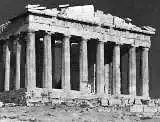
The Greek Philosophers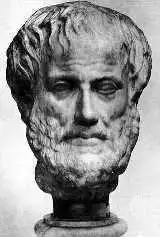
AristotleIntroductionAristotle's LifeTimelineAristotle's PoeticsAristotle's CosmologyAbout CookiesMy Other WebsitesCREATION MYTHSMyths in general and myths of creation in particular.
TAOISMThe wisdom of Taoism and the Tao Te Ching, its ancient source.
LIFE ENERGYAn encyclopedia of life energy concepts around the world.
QI ENERGY EXERCISESQi (also spelled chi or ki) explained, with exercises to increase it.
I CHINGThe ancient Chinese system of divination and free online reading.
TAROTTarot card meanings in divination and a free online spread.
ASTROLOGYThe complete horoscope chart and how to read it.
MY AMAZON PAGE
MY YOUTUBE AIKIDO
MY YOUTUBE ART
MY FACEBOOK
MY INSTAGRAM
MY TWITTER
STENUDD PÅ SVENSKA
|
 Cosmos of the Ancients
Cosmos of the Ancients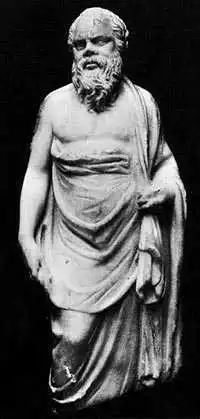
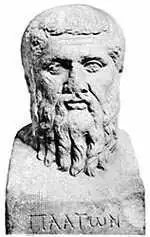 In the dialogue Cratylus, the question of names and what the names stand for is ventilated in a way that borders to parody, then again seems serious enough, where what gods can be behind their names, and if there are such things as true names as well as false ones, is pondered with numerous examples — some more probable than others. Socrates, in the midst of his joking comments, applies the analysis of names as bearers of character or fate, to that of Zeus, whose name he thinks has "an excellent meaning, although hard to be understood." This divine name is made up of two, he explains:
In the dialogue Cratylus, the question of names and what the names stand for is ventilated in a way that borders to parody, then again seems serious enough, where what gods can be behind their names, and if there are such things as true names as well as false ones, is pondered with numerous examples — some more probable than others. Socrates, in the midst of his joking comments, applies the analysis of names as bearers of character or fate, to that of Zeus, whose name he thinks has "an excellent meaning, although hard to be understood." This divine name is made up of two, he explains: